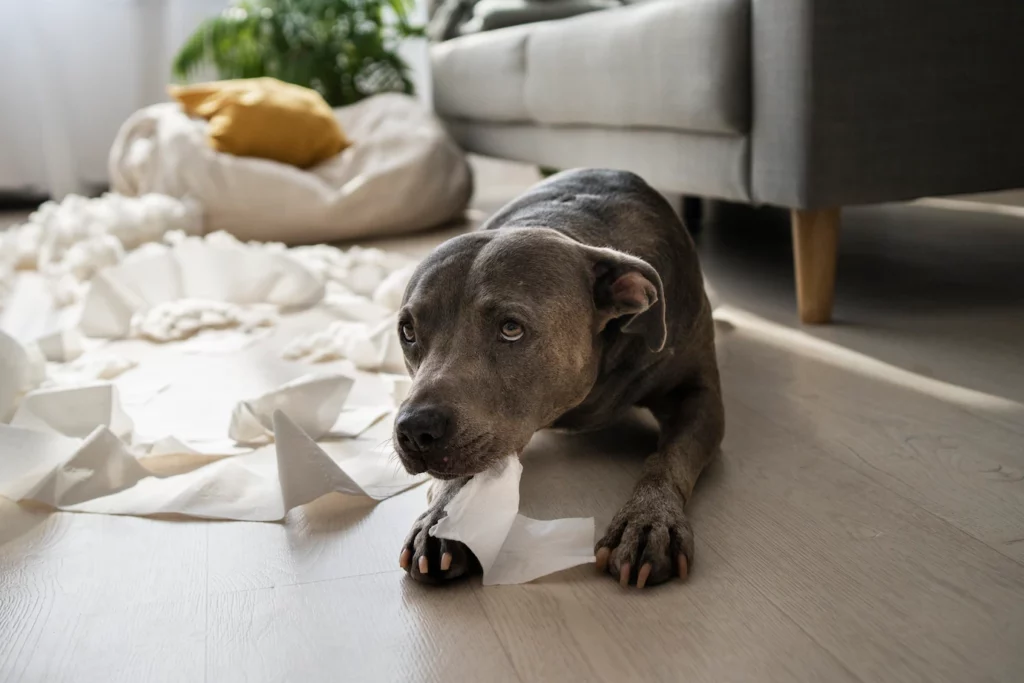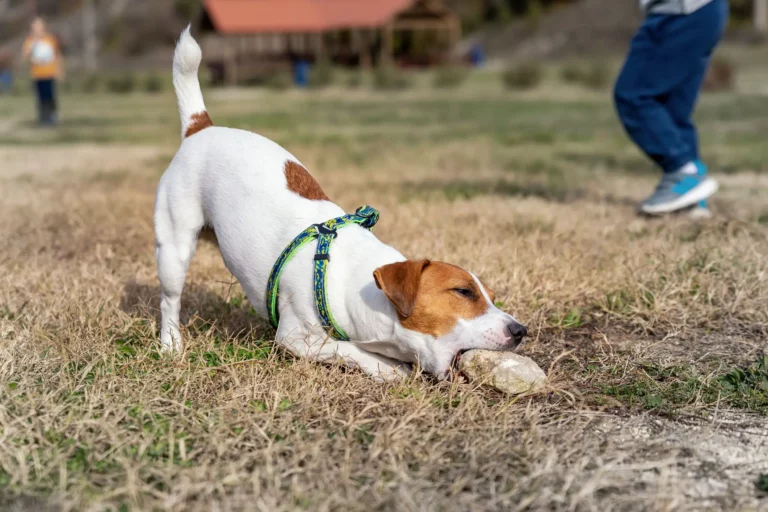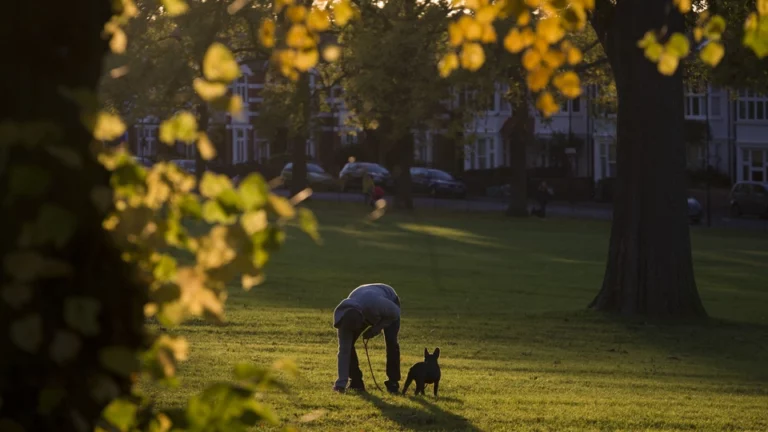Why Is My Dog Sneezing Blood & How To Treat It
Every dog parent knows that our furry friends are not immune to health issues. Among the many conditions that can affect dogs, nasal distress—marked by symptoms such as your dog sneezing blood—can be particularly concerning.
This guide aims to give you a deeper understanding of the possible reasons behind your dog’s bloody sneezes, along with professional insights into the available treatment options.
Remember, the goal is to help your beloved pet feel better as soon as possible and to maintain their overall wellbeing.
Key takeaways
Bloody sneezes in dogs indicate various conditions, from allergies to tumors.
Common causes include infections, foreign bodies, trauma, and allergies.
Accompanying symptoms can help identify the underlying condition.
Home remedies offer temporary relief but don’t replace professional care.
Older dogs are more prone to conditions causing bloody sneezes.
Bloody sneezes from one nostril suggest localized issues.
Mucus and blood together in sneezes could indicate severe infections or tumors.
Persistent or severe bloody sneezes require professional veterinary treatment.
Cancer can cause bloody sneezes, emphasizing the importance of regular vet check-ups.
Wheezing and bloody sneezes may indicate respiratory distress.
Blood clots in sneezes signal significant nasal bleeding and require immediate intervention.
Prompt vet consultation is crucial for any symptoms of distress, including bloody sneezes.
Regular vet visits and a clean environment promote overall dog health.
Key Insights on Canine Nasal Distress
There are several critical signs that your pet could be dealing with a health problem, and bloody sneezes are certainly high on the list.
Sneezing blood can be indicative of many underlying conditions, from mild allergies to severe health conditions, making it essential to determine the cause promptly.
Knowledge of the common treatment strategies can also help alleviate your pet’s discomfort, with options ranging from at-home care to professional medical intervention.
The well-being of our furry friends is always our top priority, and understanding these aspects can empower us to provide them with the best care possible.
Triggers of Dog Sneezing Blood
Dogs sneezing blood can be alarming and might make you wonder about the root cause. Bacterial and viral infections are one potential trigger, causing inflammation and blood vessel damage in the nasal passages.
Dogs are also curious creatures and might sniff up foreign bodies, leading to nasal irritation and possible bleeding.
Underlying health conditions, such as tumors or polyps, can also cause bloody sneezes. It’s crucial to remember that trauma to the face or nose could result in nasal bleeding too. Lastly, allergic reactions to environmental triggers can cause your dog to sneeze blood.
Each of these triggers necessitates different treatment approaches, underlining the importance of understanding the exact cause.

Noteworthy Symptoms Accompanying Bloody Sneezes
Alongside sneezing blood, your dog may exhibit other critical signs that indicate an underlying health issue. Persistent nasal discharge, frequent pawing at the nose, facial swelling, or a sudden change in behavior are noteworthy symptoms to watch out for.
In severe cases, dogs may show signs of respiratory distress like rapid breathing or panting. It’s essential to consult your vet promptly if you observe these symptoms. Early detection and treatment can make a significant difference in managing your dog’s condition and ensuring a speedy recovery.
Home Remedies for a Dog Sneezing Blood
When it comes to treating your dog’s nasal distress at home, a few remedies can provide temporary relief. However, these should not replace professional medical advice. Firstly, ensure your pet’s environment is clean and free from potential allergens or irritants that might exacerbate the sneezing.
If your dog is sneezing due to dryness, a humidifier can help by moistening the nasal passages. Cold compresses applied to the nose can also help reduce any associated swelling. Remember, while these home remedies for dog sneezing can offer temporary relief, always consult a vet if your dog continues to sneeze blood. Your pet’s health should never be left to chance.
Why is My Old Dog Sneezing Blood?
Age can play a significant role in your dog’s health. Older dogs, in particular, can be prone to certain conditions that might cause bloody sneezes. Conditions like tumors, polyps, or systemic diseases are more common in aged dogs.
Some older dogs might also have a weakened immune system, making them susceptible to infections that younger dogs could easily combat. It’s essential to schedule regular vet check-ups for your senior pet and closely monitor their health. Remember, with age-appropriate care and attention, your older dog can continue to live a happy, healthy life.
Dog Sneezing Blood from One Nostril
Sometimes, your dog might sneeze blood from just one nostril. This can be a sign of a localized issue, like a foreign object lodged in one nasal passage or a nasal polyp. It could also hint at a unilateral infection or, in rare cases, a tumor on one side of the nasal cavity.
A dog exhibiting these symptoms should receive prompt veterinary attention. Your vet can perform a thorough examination, possibly including diagnostic imaging, to identify the issue accurately. Providing swift treatment ensures your pet can return to its happy, healthy self as quickly as possible.
Dog Sneezing Blood and Mucus
If your dog is sneezing both mucus and blood, it could signal an escalated issue. This symptom often points to infections or inflammation in the nasal passages, where mucus production is increased and tiny blood vessels can burst due to irritation.
More serious health conditions like nasal tumors might also result in these symptoms. Given the severity of potential causes, if your dog is sneezing mucus and blood, it’s crucial to seek veterinary care without delay. Detailed diagnostic tests can help pinpoint the cause, allowing for timely and effective treatment.
Treatment for Dog Sneezing Blood
In cases of persistent or severe bloody sneezing, professional veterinary intervention becomes essential. Based on the cause, your vet might prescribe antibiotics or antifungal medication for infections, or anti-inflammatory drugs for allergies.
For more serious conditions, such as tumors, surgical intervention might be necessary. In the case of foreign bodies lodged in the nasal passage, your vet will likely remove the object under anesthesia. Remember, early consultation and professional treatment are key to ensuring your dog recovers quickly and thoroughly from their nasal distress.
Cancer and Nasal Distress: When a Dog Sneezes Blood
One of the most concerning causes of a dog sneezing blood could be nasal cancer. This condition is typically more prevalent in older dogs, but it can affect canines of any age. Along with bloody sneezes, other signs might include facial deformity, nasal discharge, or difficulty breathing.
If your vet suspects cancer, they will likely order further diagnostic tests, including biopsies and imaging scans. While this can be a scary prospect for any pet parent, remember that early diagnosis and treatment can significantly improve your dog’s prognosis and quality of life.
Support from a veterinary oncologist will ensure your pet receives the best care possible.
Dog Sneezing Blood and Wheezing
If your dog is sneezing blood and also wheezing, this might be a sign of respiratory distress. These symptoms could indicate severe nasal inflammation, infection, or even a potential blockage in the respiratory tract.
Wheezing could also point towards asthma, a condition that, while rare, can affect dogs. Irrespective of the cause, any signs of breathing difficulty warrant immediate veterinary attention. Quick and accurate diagnosis can help manage these symptoms effectively and ensure your dog’s comfort and well-being.
Why is My Dog Sneezing Blood Clots?
If your dog is sneezing blood clots, it could be a sign of significant nasal bleeding. This symptom could stem from a variety of causes, from severe trauma to advanced nasal infections or tumors. The blood clots form when the blood coagulates inside the nasal passage due to consistent bleeding.
Blood clots in your dog’s sneeze warrant immediate veterinary attention. They can signal serious health issues that require professional diagnosis and treatment. Prompt action can ensure that your pet receives the care it needs, preventing further complications and promoting a swift recovery.

FAQs on Canine Nasal Distress
1. What should I do if my dog is sneezing blood?
If your dog is sneezing blood, contact your vet immediately. This symptom can be a sign of various health conditions, some of which require urgent attention.
2. What does it mean to sneeze out blood?
Sneezing blood, or hemoptysis, is typically a sign of irritation, injury, or disease in the respiratory tract. In dogs, this can be due to allergies, foreign bodies, trauma, infections, or serious conditions like tumors.
3. Why is my dog’s nose bleeding with snot?
A dog’s nose might bleed with snot due to an infection or inflammation in the nasal passages. More severe causes could be nasal tumors or trauma. In all cases, a vet should evaluate your dog to determine the cause.
4. Is a nose bleed in a dog an emergency?
While not all nose bleeds are emergencies, they should always be treated as potential signs of serious underlying conditions. If your dog’s nose bleed is persistent, accompanied by other distressing symptoms, or if the dog seems unwell, seek veterinary care immediately.
5. Can an allergy make my dog sneeze blood?
Yes, severe allergic reactions can cause inflammation and irritation in the nasal passages, which might result in bloody sneezes. However, it’s essential to rule out other more serious causes with your vet.
6. Will my dog recover from sneezing blood?
Most dogs recover well from sneezing blood once the underlying cause is identified and treated. However, recovery may take time and requires proper care, medication, and follow-up with the vet.
7. Could my dog’s food be causing the bloody sneezes?
While food allergies can cause a range of symptoms, they’re unlikely to cause bloody sneezes directly. However, if you suspect your dog’s diet is causing health issues, consult your vet. They can guide you on an appropriate dietary plan for your pet.
8. How can I prevent my dog from sneezing blood in the future?
Prevention largely depends on the cause. For instance, keeping your dog’s environment clean and allergen-free can help prevent allergic reactions. Regular vet check-ups can catch potential health issues early. Always monitor your dog for signs of distress and contact your vet if you notice anything unusual.
Final Reflections: Promoting Your Dog’s Nasal Health
As pet parents, our primary goal is to ensure our furry friends lead healthy, comfortable lives. While a dog sneezing blood can be alarming, remember that many causes are treatable, especially with early detection and intervention.
Keep a watchful eye on your dog’s behaviors and symptoms, and don’t hesitate to consult your vet when you notice anything unusual.
Proactive measures, such as maintaining a clean, safe environment, ensuring a balanced diet, and scheduling regular vet visits, can go a long way in promoting your dog’s overall health.
In doing so, we can create a happier, healthier life for our beloved pets, and continue to enjoy the love and companionship they unfailingly provide.






